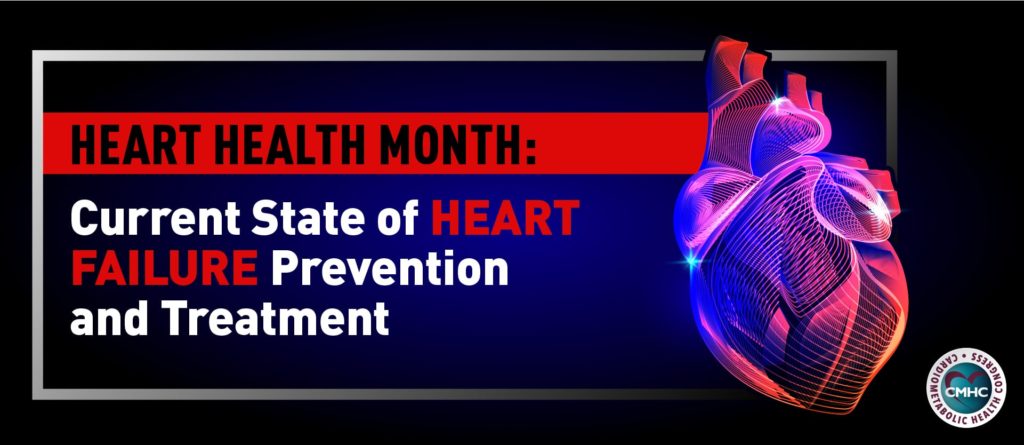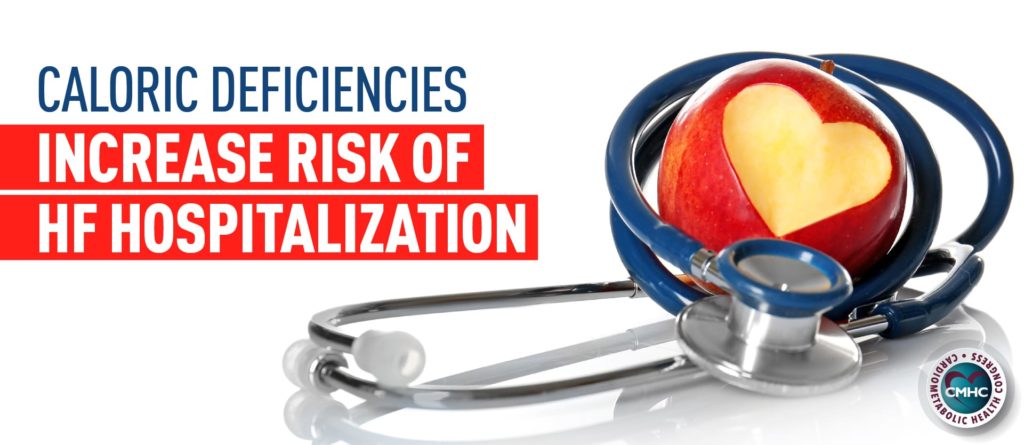CardioMEMS Shows Promise for Expanded Use Despite Falling Short in Trial

By Kate Buron When The U.S. Food and Drug Administration (FDA) approved the CardioMEMS HF System in 2014, Abbott harnessed the power of artificial intelligence (AI) coupled with telemedicine for managing patients with heart failure (HF). Expanded use of the system was the objective of a new trial initiated in 2018, but the onset of […]
Heart Health Month: Current State of Heart Failure Prevention and Treatment

February marks the beginning of Heart Health Month an annual celebration raising awareness for cardiovascular disease and promoting global heart health, during which we will be spotlighting clinically topical areas of cardiovascular medicine. Current statistics indicate that approximately 6.2 million adults in the United States have heart failure (HF) with a continuously rising prevalence over time […]
Caloric Deficiencies Increase Risk of HF Hospitalization

Heart failure (HF) remains a deadly disease tied to a high risk of hospitalizations, reduced cardiorespiratory fitness and a subsequently reduced quality of life. Targeted treatments and lifestyle interventions continue to show promising results in improving HF outcomes although, there is limited evidence of their role in decompensated patients admitted to the hospital for acute […]
New Metabolic Target to Prevent Heart Failure Identified

The incidence of heart failure is the only form of heart disease that has not decreased in over 30 years, with approximately 550,000 new cases diagnosed in the U.S. per year. Technological advancements in cardiac devices and improved prevention and treatment methods have diminished the death rate, but cardiovascular disease remains the leading cause of […]
SGLT-2 inhibitors Associated with Decreased HF Hospitalizations in Type 2 Diabetes
The management of patients with type 2 diabetes (T2D) and heart failure (HF) is challenging, and the optimal care for these patients is not very well defined. The coexistence of these two conditions increases morbidity and mortality. Patients with HF and T2D are at an increased risk for cardiovascular-related mortality and have higher rates of […]
New Study Suggests Loneliness is Bad for the Heart
Social isolation can be a killer, and not merely in the figurative sense. Loneliness may actually cause premature death by damaging the heart, according to a new study. The research suggested that feeling loneliness may double a person’s risk of dying of cardiovascular disease. “Loneliness is more common today than ever before, and more people live alone,” Anne […]
Type 2 Diabetes and Heart Failure: A Deadly Combination
An in-depth session titled “Heart Failure: The Frequent, Forgotten, and Often Fatal Complication of Type 2 Diabetes” was presented last week at the American Association of Clinical Endocrinology’s 26th Annual Scientific and Clinical Congress. The cited evidence and research pointed to a high frequency of heart failure, accompanied by an increased risk of mortality, for […]
Heart Failure in the South
A recent ethnographic study titled “Heart Failure Incidence and Mortality in the Southern Community Cohort Study (SCCS)” investigated heart failure incidence, and post-heart failure survival, by race and sex among low-income adults in the southern parts of the United States. Heart failure risk factors in the study included hypertension, diabetes, myocardial infarction, and obesity. The […]
Heart Failure Risk Tied to Mid-Life Occurrence of Hypertension, Diabetes, and Obesity
A recent study published in the Journal of the American College of Cardiology: Heart Failure found that adults who reached the age of 45 without experiencing hypertension, diabetes, and obesity were 73% less likely to develop heart failure later on in life. Those who reached the age of 55 without any of the three risk […]
ACCF/AHA Guideline for the Management of Heart Failure Updated in Light of New Treatment Options
An update to the 2013 ACCF/AHA Guideline for the Management of Heart Failure was recently released to reflect the addition of two new pharmacotherapeutic options in the treatment of heart failure: valsartan/sacubitril, an angiotensin receptor-neprilysin inhibitor (ARNI) and ivabradine, a sinoatrial node modulator. The update clarifies that patients with chronic symptomatic HF with reduced ejection […]













